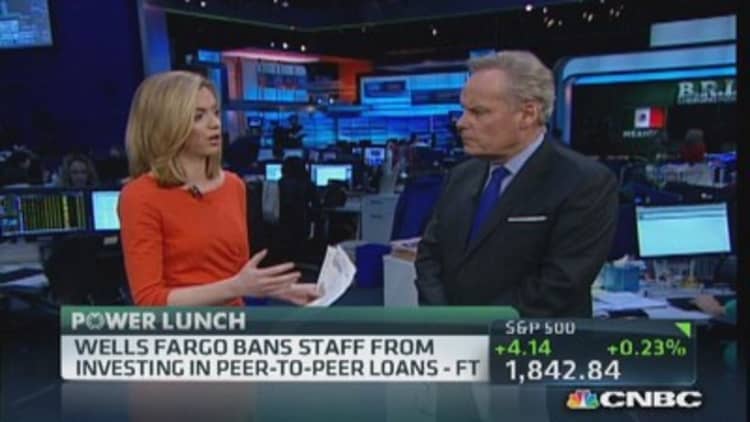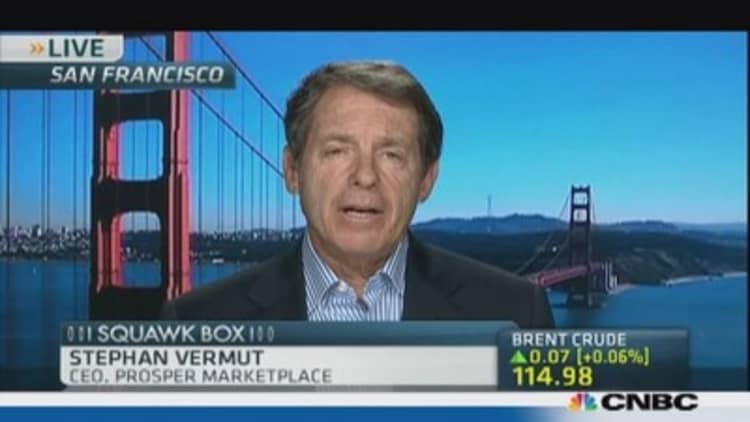
Wells Fargo has banned its employees from lending their own money through peer-to-peer loan platforms, in a sign of growing tensions between new "P2P" lenders and the largest U.S. bank by market value.
"Ethics administrators" at Wells Fargo decided to forbid staff from P2P lending after concluding "that for-profit peer-to-peer lending is a competitive activity that poses a conflict of interest."
Tensions between banks and peer-to-peer platforms have arisen because the P2P model cuts traditional lenders out by matching capital directly with borrowers. The juicy yields on offer have attracted investments from a range of would-be lenders, including hedge funds and private individuals.
"Going forward, please refrain from making any new P2P investments/loans," a Wells Fargo compliance officer said in a message sent to some employees with P2P accounts late last year, which was seen by the Financial Times.
More from the Financial Times:
Turnround in China's P2P lending boom
P2P lending – be disciplined
Big banks muscle in on peer-to-peer lending
"If possible, exit existing investments as soon as practical (without forcing a loss) or when the loans are paid off."
Like other parts of the shadow banking industry, P2P platforms have stepped in to replace banks that have scaled back lending in the wake of the financial crisis. Using new technology, they are often able to extend loans at lower rates for borrowers while offering higher returns for investors.

The move by Wells Fargo highlights the sometimes fractious relationship between P2P lenders and the banking industry, although some banks – including Citigroup, Barclays and Deutsche Bank – are exploring how to package the loans into bonds before selling them on to large institutional investors.
The dominant P2P lenders in the U.S. – Lending Club and Prosper – have extended a fraction of the amount of credit as the San Francisco-based Wells Fargo, but they are growing rapidly at a time when the bank has scaled back lending.
(Read more: Lehman-like creditbubble next up for sharing economy?)
The P2P industry has attracted the interest of Wall Street – with banks including Citigroup, Barclays and Deutsche Bank exploring how to finance or securitise peer-to-peer loans to sell to more large investors
A spokeswoman for Wells Fargo said she could not confirm the message but that the bank's code of ethics states that staff should not have an investment in a privately held business that competes with the bank, or causes an actual or potential conflict of interest.

Lending Club, the biggest P2P lender in the US, says it has provided $3.35bn worth of loans since starting the business almost seven years ago. Prosper, the second-biggest P2P lender in the country, says it has made $690 million worth of loans.
Investors in the safest loans available to buy on Lending Club's platform can earn returns of 7.7 per cent to 15.3 per cent, far higher than the 2.84 per cent on offer from 10-year U.S. Treasuries.
(Read more: Reversal of fortunein China's peer-to-peer lending boom)
Lending Club has appointed three high-profile board members from Wall Street, including John Mack, the former Morgan Stanley chief executive, Mary Meeker, the internet analyst, and Lawrence Summers, the former US Treasury secretary.
Prosper, meanwhile, recruited Stephan Vermut, its current chief executive, from Wells Fargo, where he used to head the bank's prime brokerage business.
Follow us on Twitter: @CNBCWorld

